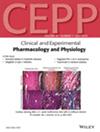Prevalence and Associated Factors of Anxiety and Depression in Lung Cancer Patients
Abstract
Purpose
Given the prevalence of anxiety and depression amongst lung cancer patients in China, it is critical to identify potential factors contributing to these symptoms to improve future treatment strategies. However, current research has primarily focused on clinical variables, leaving various sociodemographic factors largely underexplored. Examining these aspects is essential for enhancing clinical interventions and patient care, as sociodemographic factors can significantly influence psychological outcomes.
Methods
A total of 486 lung cancer patients were included in the study. Data on anxiety and depression were collected using the Hospital Anxiety and Depression Scale (HADS), and sociodemographic information was gathered via a structured questionnaire. Clinical data was retrieved from the hospital's database. Univariate analysis and multivariate logistic regression were applied to identify sociodemographic and clinical factors that were significantly associated with anxiety and depression.
Results
The findings revealed prevalence rates of 24.07% for anxiety and 25.72% for depression. Local residency in Shanghai, internet use, financial strain, and advanced cancer stages (III or IV) were associated with a higher level of both anxiety and depression. Having a university/college education or higher was solely linked with increased anxiety levels.
Conclusion
Local residency, internet use, financial strain, cancer stage, and educational background are key predictors of anxiety and depression amongst lung cancer patients. It is crucial for healthcare professionals to monitor and support the mental well-being of lung cancer patients, especially those affected by these identified factors.

 求助内容:
求助内容: 应助结果提醒方式:
应助结果提醒方式:


